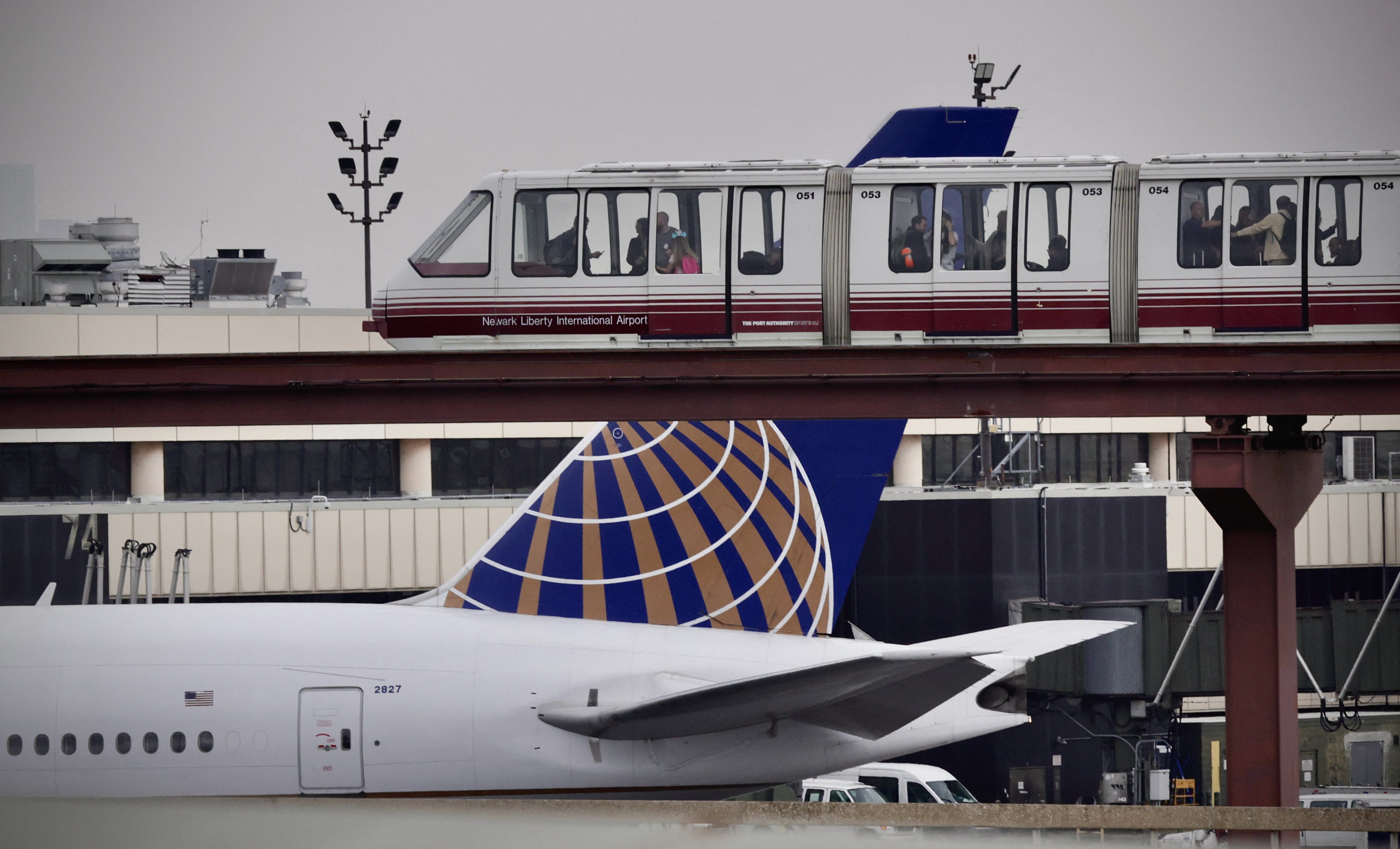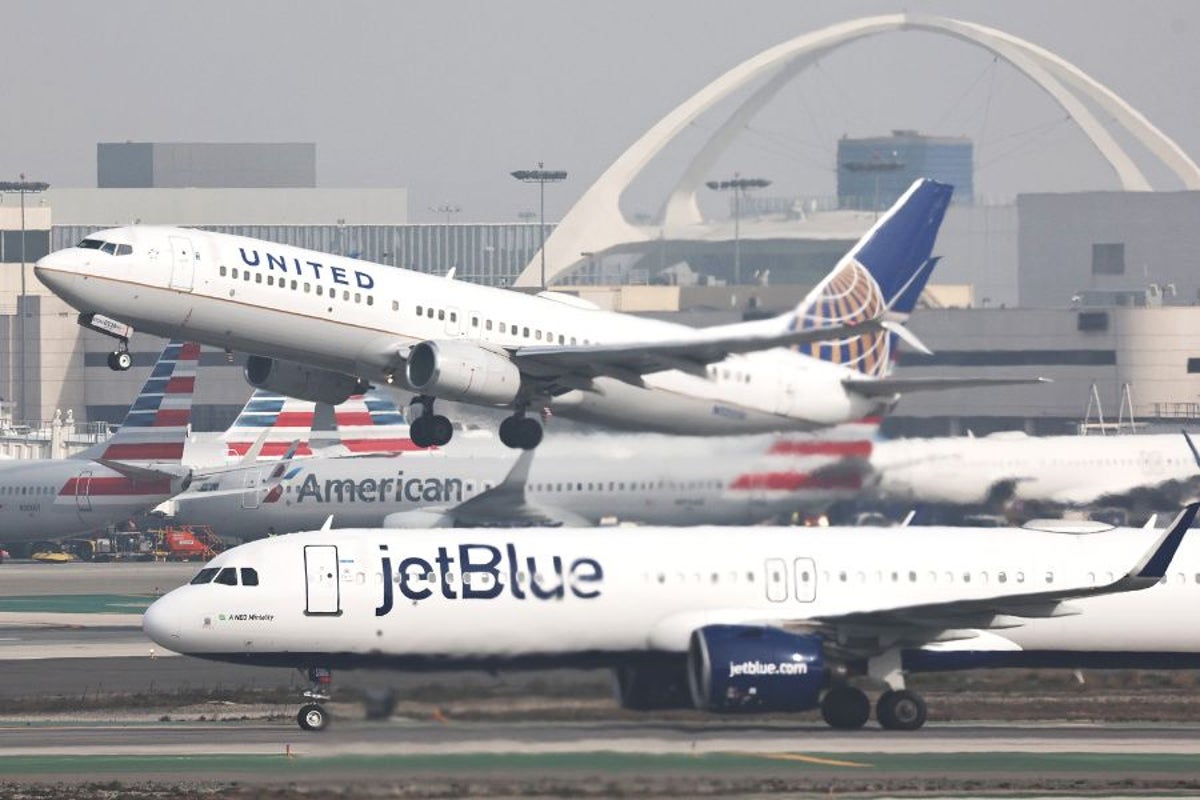United Airlines and JetBlue Airways have announced a new partnership and it includes some big benefits for those heading to the skies.
The deal was announced Thursday and still needs federal approval. It will allow passengers to earn and redeem frequent flyer miles across both airlines and book flights on each other’s websites. United’s MileagePlus and JetBlue’s TrueBlue members will gain access to each other’s loyalty perks, including priority boarding, free checked bags, preferred seating, extra legroom and same-day changes when flying on either carrier.
The agreement also involves United’s return to New York’s JFK Airport, where it ceased operations in 2022.
Starting as early as 2027, JetBlue will give up to seven daily round-trip slots at JFK to United. In exchange, JetBlue will gain additional space at Newark Liberty International Airport.
Despite the close collaboration, both airlines will maintain independent operations, managing their own flight schedules and pricing.

United will shift its website and mobile app travel booking features, including hotels, rental cars, cruises and insurance, to JetBlue’s Paisly platform.
If approved, elements of the “Blue Sky” alliance could begin as early as fall 2025.
“United’s global reach perfectly complements JetBlue’s East Coast leisure network, and significantly expands the options and benefits for TrueBlue members, no matter where in the world they are traveling,” Joanna Geraghty, CEO of JetBlue, said in a news release.
“We’re always looking for ways to give our MileagePlus members even more value and benefits and this collaboration gives them new, unique ways to use their hard-earned miles and find options that fit their schedule,” United CEO Scott Kirby added.

The new alliance follows JetBlue’s previous partnership with American Airlines, known as the Northeast Alliance, which ended in 2023 after the Department of Justice filed an antitrust lawsuit against the two companies.
The DOJ argued that JetBlue and American’s partnership reduced competition and harmed consumers by effectively merging operations in key markets like New York and Boston. A federal judge ruled in favor of the DOJ, leading to its termination.
[6].jpeg?trim=0,0,0,0&width=1200&height=800&crop=1200:800)



